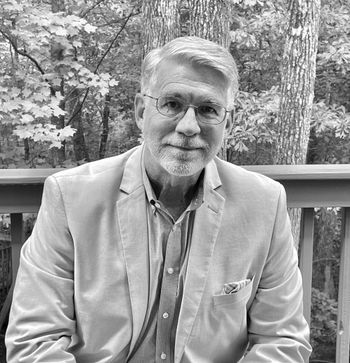PROF JENKINS: Navigating the collapse of credentialism
No wonder we don’t trust the 'experts' anymore.
Rob Jenkins is a Higher Education Fellow with Campus Reform and a tenured associate professor of English at Georgia State University - Perimeter College. In a career spanning more than three decades at five different institutions, he has served as a head men’s basketball coach, an athletic director, a department chair, and an academic dean, as well as a faculty member.Jenkins’ opinions are his own and do not represent those of his employer.
In my last column, I observed that “credentialism”—the belief that degrees and titles by themselves confer expertise—is collapsing in slow motion all around us.
That fact was highlighted again last week when Dr. Anthony Fauci, technocrat-in-chief, admitted publicly something many of us had long suspected: the six-foot “social distancing” rule, which for two years destroyed small businesses, closed schools, and shuttered churches, was basically made up.
No wonder we don’t trust the “experts” anymore. We learned not to trust them during Covid, when they said so many things that were manifestly untrue. Our distrust was only heightened when the entire medical establishment began insisting that males can become females and vice-versa (spoiler alert: they can’t).
But perhaps the final nail in credentialism’s coffin came when the former president of Harvard University—arguably the most credentialed person at the most important credential-granting institution on the planet—turned out to be a complete fraud.
[RELATED: PROF JENKINS: The collapse of credentialism]
And for anyone who might think the Harvard situation is a “one-off,” consider this: The Yale Law School dean who threatened to discipline a student for belonging to the Federalist Society and inviting fellow students to a Constitution Day event is now being considered for the presidency of that formerly august institution.
Right. That’s really going to increase people’s faith in the credentialed class.
This turn of events is mostly positive. Americans had grown complacent, “trusting the experts” instead of taking responsibility for our own lives. For years, we’ve outsourced our common sense to people with high-sounding degrees and titles who might actually, as we’ve learned, be fools, charlatans, and would-be tyrants.
The loss of trust in credentials, however, has created a problem for those who need a credential to work in their chosen field. That includes prospective lawyers and doctors as well as K-12 teachers, professors, engineers, and CPAs, among others.
As you contemplate the time and effort required to obtain a credential, you must first decide if that is the right path for you. Many high-paying trades—in the construction industry, for example—prefer on-the-job training to formal degrees. In other fields, like IT, talent and experience may well be acceptable substitutes.
Of perhaps not. It depends on the position and the company. Do your homework: search the job listings, peruse company websites, talk to people in the field. That way you can figure out what you really want to do—and what you need in order to do it.
That might include a credential—but what credential, specifically? One reason young people these days find themselves unable to replicate their parents’ lifestyle is that they borrowed heavily to pursue worthless degrees--“credentials” that signify nothing and don’t lead to gainful employment.
So choose a degree that will actually mark you as competent and employable, such as engineering or finance or accounting. Obtaining an additional credential granted by a professional organization, like a PE or CPA, will increase your future prospects even more. Those are more meaningful than college degrees.
The next question is where to get your credential. Plenty of organizations, both for-profit and non-profit, offer degrees and certifications online. Those might not have the same cachet as traditional, on-campus diplomas, but in many cases, they work just as well.
[RELATED: PROF JENKINS: Claudine Gay debacle shows rejecting Western values has real consequences]
If you opt for the brick-and-mortar experience, remember that attending a “brand name” college isn’t as important as you might think. Indeed, these days, the “brand names” are little more than woke indoctrination camps. You may be better off at a smaller state university, or even—as my colleague at Campus Reform, Prof. Nicholas Giordano, has argued persuasively—starting off at a community college.
If your career path requires additional education, your graduate or professional affiliation will ultimately be more important than where you did your undergraduate work. Consider going cheap and local for your bachelor’s. Study hard and do well, then you can apply to name-brand graduate programs if you want.
By doing your research, planning carefully, and working hard, you can emerge from the collapse of credentialism unscathed, with degrees and certifications that mean something. More important, you might actually KNOW something, which will clearly set you apart from our current crop of worthless “experts.”
Editorials and op-eds reflect the opinion of the authors and not necessarily that of Campus Reform or the Leadership Institute.

